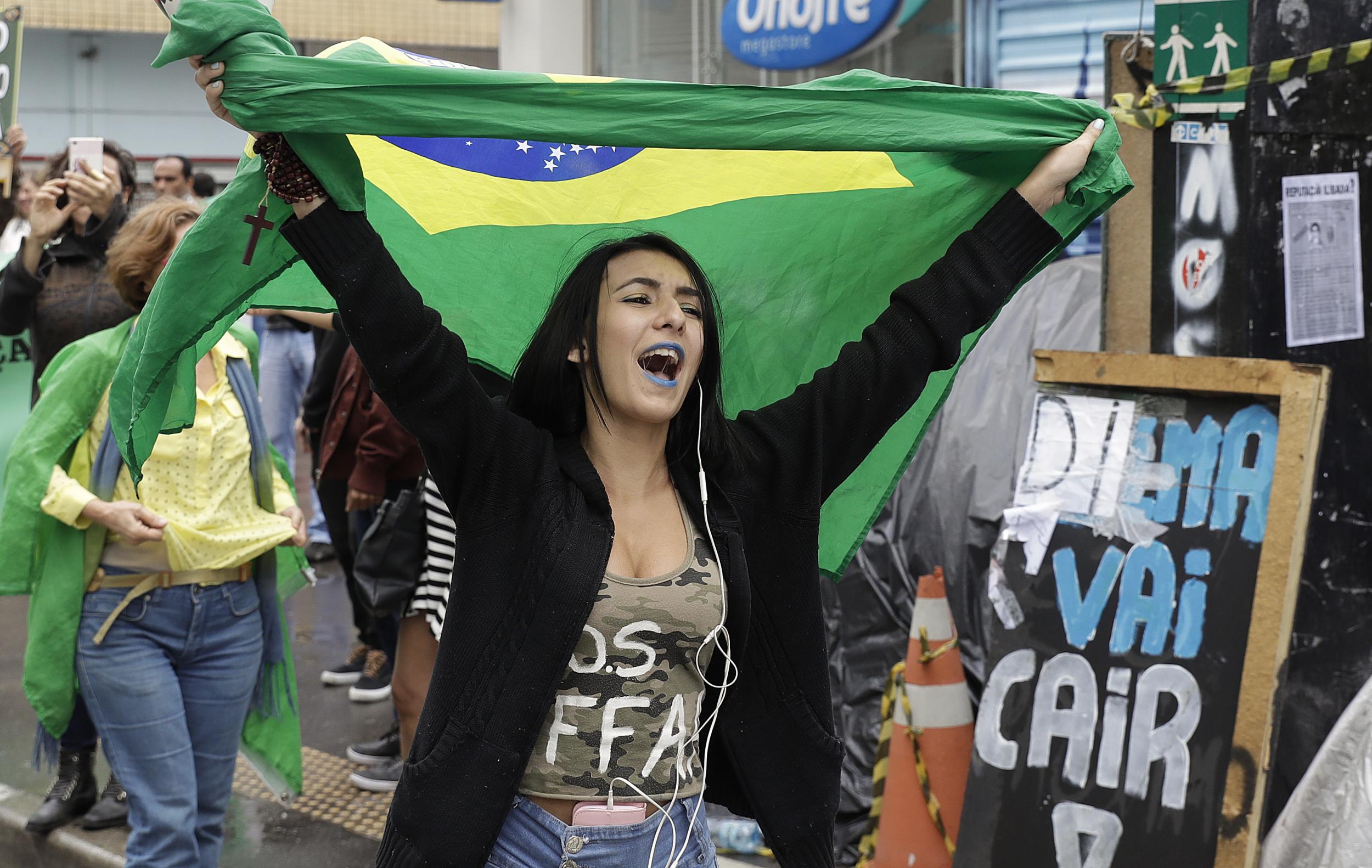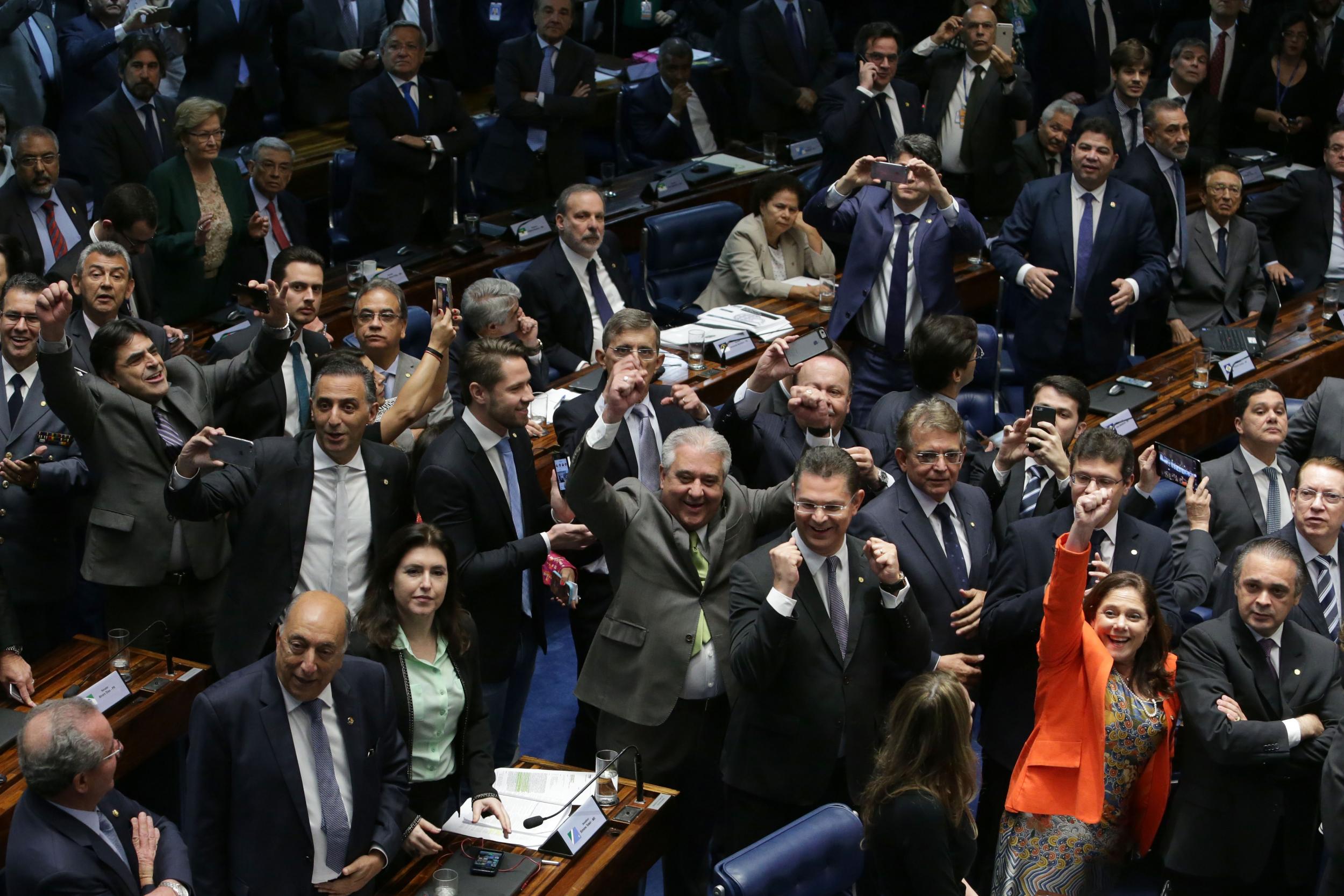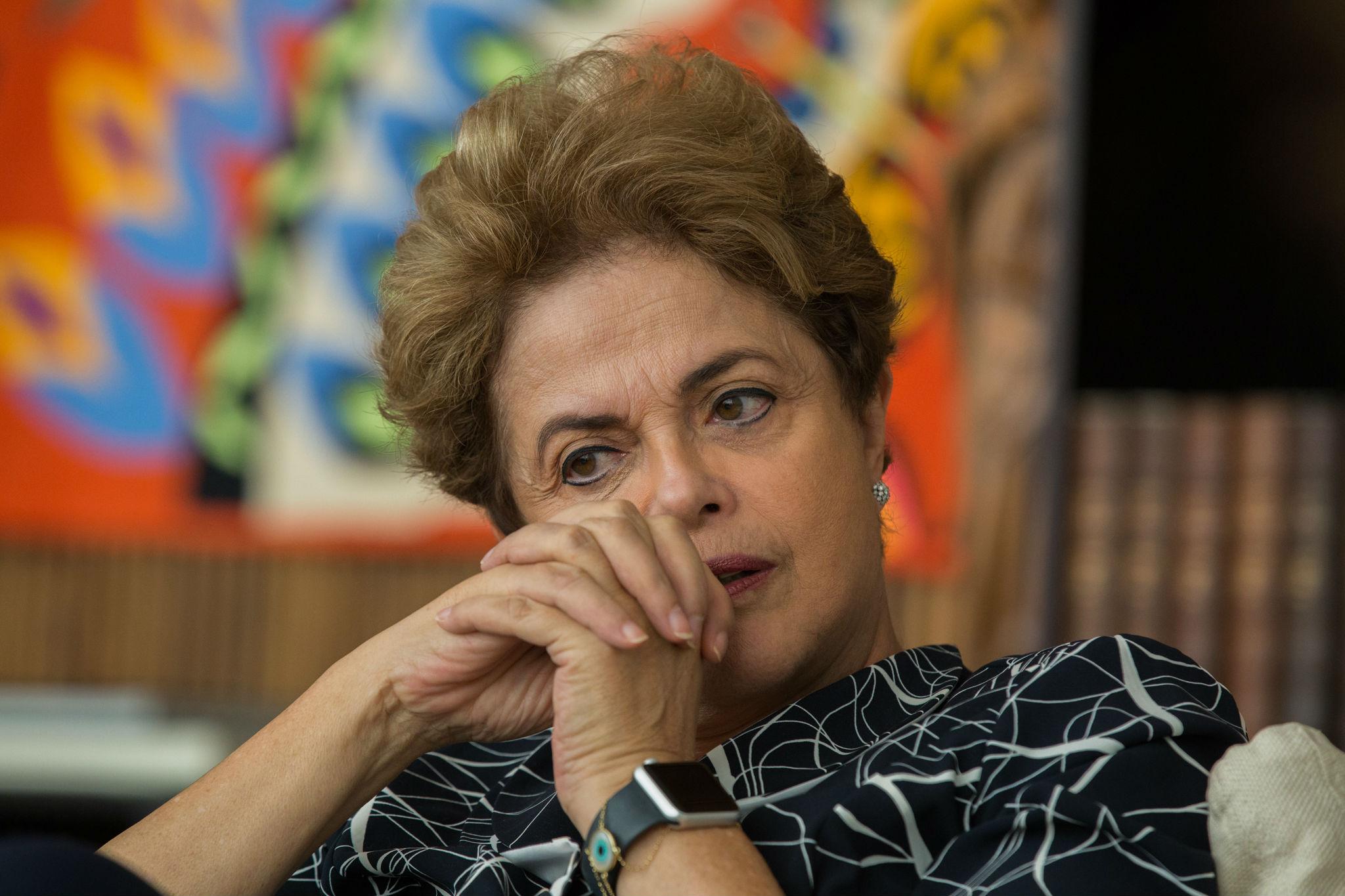Dilma Rousseff impeachment: Everything you need to know about Brazil's political crisis
The removal of Brazil's president marks the end of a year of turmoil - but what happens next?

The Brazilian senate has voted to remove Dilma Rousseff from office, ending 13 years in power for her left-wing Workers’ Party.
Michel Temer, the acting president, will serve out her term, which comes to an end on 1 January 2019.
Critics accused Ms Rousseff of fiddling finances to keep her popular social spending programmes running and ensure her re-election, while her supporters say she was the victim of a coup d'etat.
Here is our guide to where Brazil stands now.

What is the Workers’ Party?
Brazil, like many other Latin American countries, re-embraced democracy in the mid-1980s after a long era of right-wing military dictatorship in which many thousands of social-democrats, socialists, trade unionists, Indians and others were tortured and murdered.
During that period, Brazil's largest left-of-centre party – the Workers' Party (PT) - was established.

After several attempts at winning a general election, the party succeeded in 2003, when its candidate Luiz Inácio Lula da Silva was elected president.
He was succeeded in 2011 by Dilma Rousseff, becoming Brazil’s first female president.
What was their record in government?
The percentage of people below the poverty line has been reduced from 15% in 2003 to 3.5% in 2012, and 2.8% in 2014. Since 2003, more than 21 million people have been lifted out of extreme poverty.
Higher education was opened up to millions more students, including among non-white and poorer populations. And Brazil's infrastructure also improved very significantly – 8,655 km of federal highway concession and 2,007 km of more railway line were built.
Overall, supporters say it has been the largest and most rapid redistribution of wealth and reduction in poverty ever carried out by a democratic country in the history of the world.
So what went wrong?
In late 2013 the Brazilian economy started to experience severe difficulties (partly because the country's foreign trade was over-reliant on commodity exports) – and in 2014 the Federal Police started investigating political corruption. President Rousseff herself has not been implicated in corruption.
Nevertheless, by early 2015, the president’s popularity was on the wane – and by late 2015, the Brazilian right was pushing for her removal. At the same time, the Brazilian National Accounts Tribunal, the body that scrutinises the government’s budget, recommended the rejection of the government’s 2014 accounts on the grounds the president had used money from state-owned banks to supplement the budget. Although such budget support has been practised by previous presidents, this is the first time that the tribunal has ever used it as a reason to reject a government’s annual accounts. The tribunal’s allegations were then used by the political opposition and elements of the media to start impeachment proceedings.
Rousseff supporters believe some right-wing politicians and others have pushed for the president's impeachment in order to stop her government's campaign against corruption. Indeed more than half the MPs in Brazil's Chamber of Deputies who voted to impeach her are under investigation.
Indeed, one very senior politician in the country's new post-coup administration recently had to stand down because he was caught on tape allegedly suggesting how to end the country's biggest-ever corruption investigation.
When did impeachment proceedings begin?
In late March 2016, the vice president’s political party – the Brazilian Democratic Movement Party (PMDB), announced that it was leaving the government coalition, although the vice president would stay in post.
After the PMDB left the coalition, opposition politicians pushed ahead with plans to impeach the president. On Sunday, 17 April, the lower house (Chamber of Deputies) of Brazil's Congress (parliament) decided by 367 votes to 137 votes to try to start impeachment proceedings against the President. That decision was ratified in May by the Senate and the president was suspended from office.
So who’s in charge?

Vice President Temer (of the by-then opposition party PMDB) was first in line to take over from her – and has therefore been declared president. A complete change of government (from left-of-centre to right-wing) has therefore been engineered by rightist politicians, media moguls and big business - without any electoral process (and with total disregard for the majority of Brazil's voters who re-elected President Rousseff just 21 months ago). What has occurred is, in reality, a political coup d'état - and seven Latin American countries are currently refusing to recognize the new 'government'.
What happens next?
There is no provision within Brazil's constitution to call a mid-term general election – unless the vice-president as well as the president were impeached or otherwise unavailable for office. That leaves Mr Temer in power.
Nobody really knows what the potential consequences of this change of government in mid-term without an election might be. There are fears that it could not only undermine democracy but also create an atmosphere of extreme political, social and economic instability, which could impact not only on Brazil, but also on other countries in Latin America. Political opinion in Brazil has polarised. Over recent months some violence has erupted. Some labour movement and progressive activists have been physically attacked – and several have lost their lives at the hands of right-wing extremists.
Since the dark days of the continent’s military dictatorships, South America has come a long way. Democracy has been embraced. Now many people fear that those achievements could be put in peril by the removal of Brazil’s elected president.
Join our commenting forum
Join thought-provoking conversations, follow other Independent readers and see their replies
Comments
Bookmark popover
Removed from bookmarks